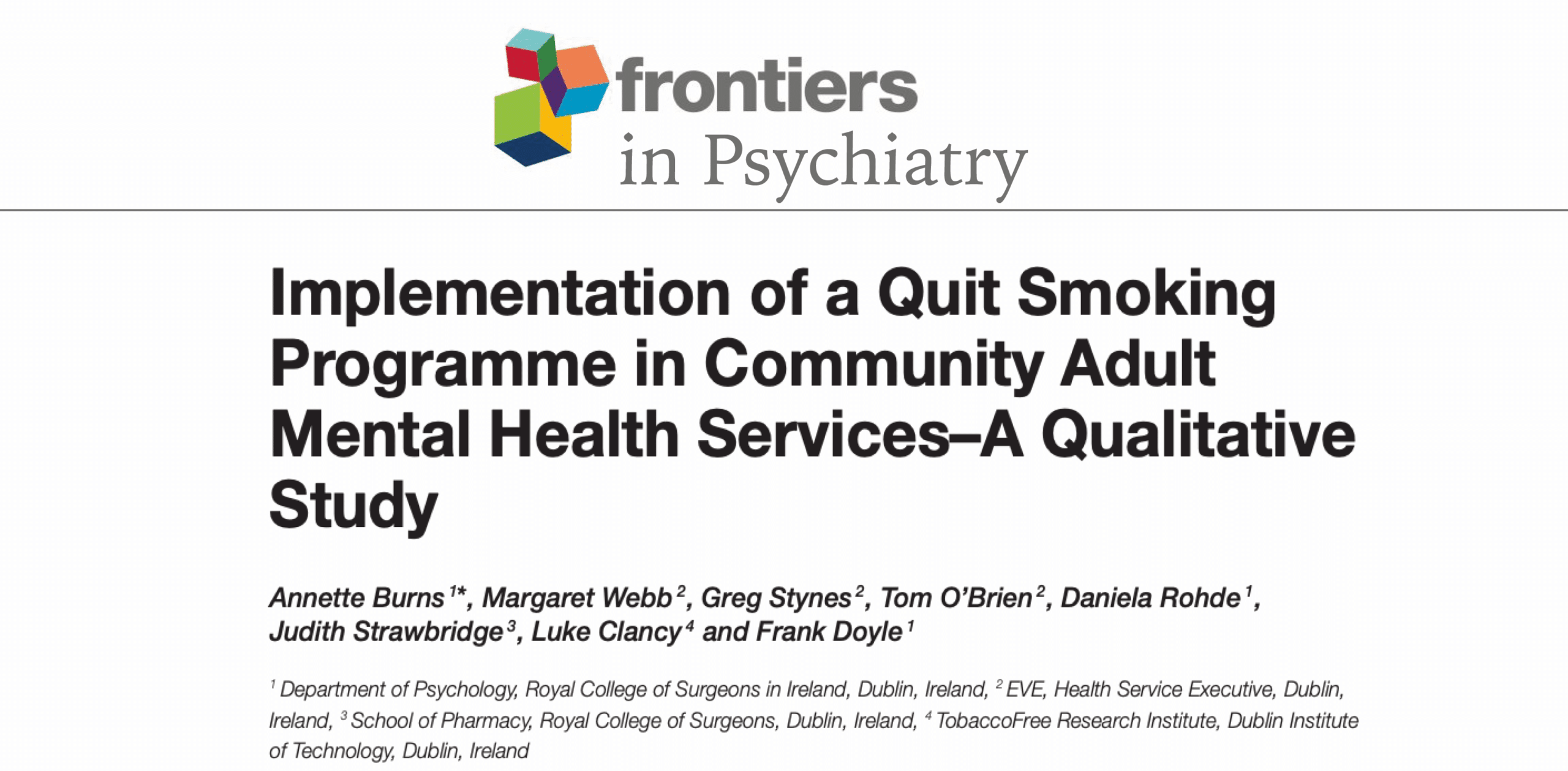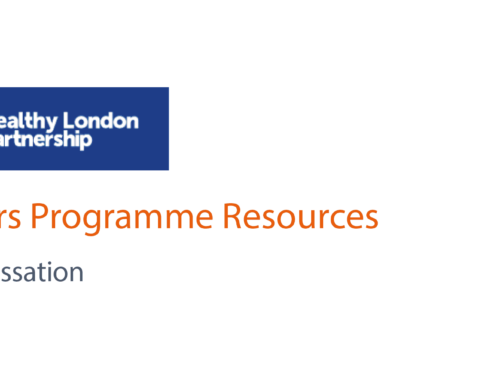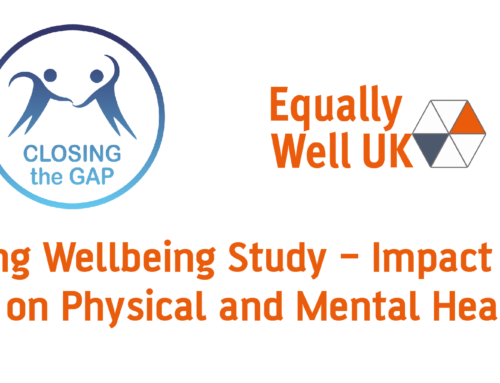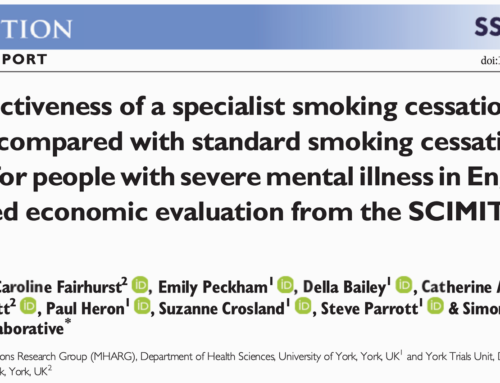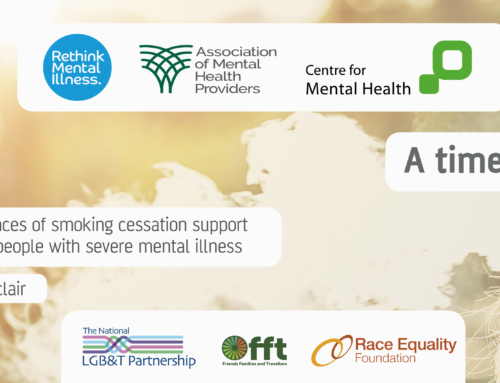Project Description
This study aimed to review the implementation of a smoking cessation programme across 16 community mental health day services. The aim was to establish the experience from both service user and facilitator perspectives and refine implementation for future groups. In-depth interviews were conducted with 20 service users and four focus groups held with 17 facilitators. Thematic analysis was used to analyse the data for emergent themes in relation to key enablers and barriers to implementation. Data from service users and facilitators revealed that implementation was enabled by an open and engaged recruitment approach; the resourcefulness of facilitators; programme materials and group-based format; combining the cessation programme with other and broader health initiatives; and participants’ motivations, including health and money. Barriers included the structure of the service; the lack of a joined-up approach across the health services; literacy issues and the serial/logical process assumed by the programme. Barriers perceived as more specific to those with mental health difficulties included the use of smoking as a coping mechanism, lack of alternative activities/structure and lack of consistent determination. The tobacco-free policy, implemented shortly before the programme, interestingly emerged as both a barrier and an enabler. In conclusion, although this group-based cessation programme in community mental health settings was well-received overall, a number of key barriers persist. A joined-up approach which addresses the culture of smoking in mental health settings, inconsistencies in smoking policies, and provides consistent cessation support, is needed. Care needs to be taken with the timing as overall it may not be helpful to introduce a new smoking cessation programme at the same time as a tobacco-free policy.

